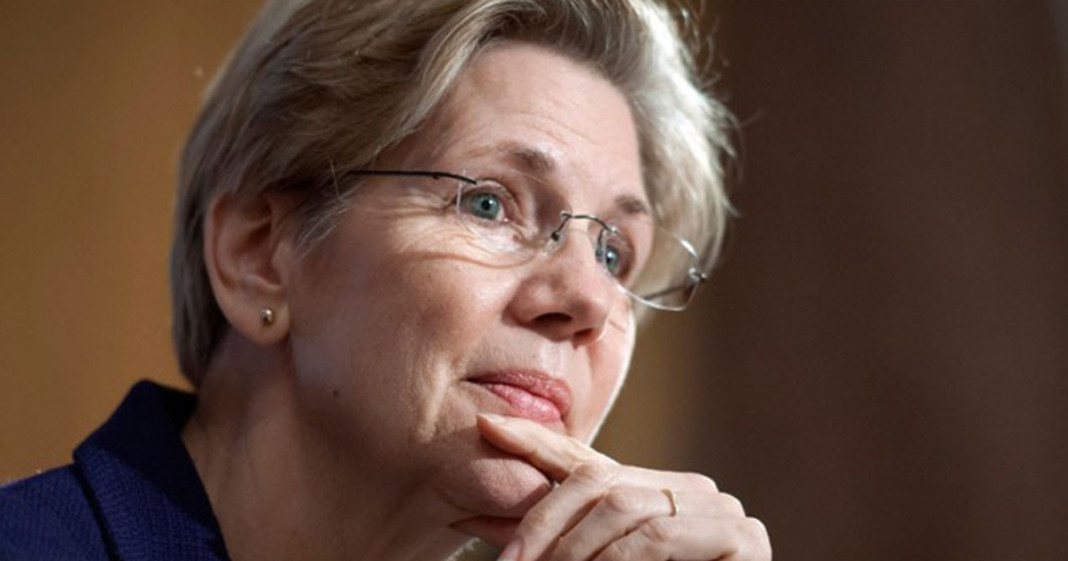A new poll of Bay Staters by NPR radio station WBUR suggests that Massachusetts Senator Elizabeth Warren may face a tough reelection race next year. Although more than half of Massachusetts voters continue to view her favorably (51%), the same poll indicates that more than half (56%) want to “give someone else a chance.” This is based on a live telephone survey of over 500 voters across the Bay State.
By contrast, Massachusetts’ GOP Governor Charles Baker polls more favorably than Senator Warren – by 8 percentage points. Furthermore, fewer than 30% want to see someone new in the governor’s mansion. So, how is it that a Progressive Democratic Senator is less popular than a Republican governor – and should we be worried?
According to Steven Koczela, who heads the firm that conducted the poll, it’s about bipartisanship. He pointed out,
“When you look at Elizabeth Warren’s favorables, only 12 percent of Republicans have a favorable view of her. When you look at Baker, 60 percent of Democrats view him favorably. So he has bipartisan appeal, where Elizabeth Warren really never has.”
It’s also about a general dislike for Congress in general, particularly for incumbents. One voter who participated in the survey acknowledged that he supported Warren, but added,
“I don’t think that as a group they’re doing any sort of a good job…think they should all be replaced.”
On the other hand, Governor Baker’s own ratings have been slipping precipitously. Last summer, his favorables were nearly 70%; today, they’re down to under 60. Much of that has to do with runaway costs for necessities such as housing and health care. Another concern is checks and balances, which have virtually disappeared. An independent who voted for Baker describes the Bay State’s governor as “very pragmatic” and “somewhat independent-minded.” However, a Democratic voter who cast her ballot for Republican Baker says the GOP takeover last November was a game changer. She says,
“If Hillary had won I’d vote for Baker next time around…but I don’t want to see any Republicans any place. I’m feeling really overwhelmed by what the Republicans are doing.”
Before Progressives start wringing their hands over the apparent impending demise of Elizabeth Warren’s Senate career, there are a couple of things to keep in mind. First of all, a lot can change over the next two years. Polls this early out from an election don’t mean very much.
Secondly, a political scientist from Tufts University, Jeff Barry, says that while the WBUR sponsored poll “does show some vulnerability,” and that Senator Warren “has some work to do shoring up her flanks” (she enjoys a slight advantage among Independent voters, but tends to focus more on national issues than concerns in her home state), the departure of former President Obama will increasingly put her in the spotlight as she hopefully takes a growing role as one of the leaders of the Democratic Party.
“She’s also going to be very well funded,” Barry says. “The Republicans have to come up with somebody to take her on…that’s no easy task.”
Currently, the most likely challenger for Warren’s Senate seat is a former professional baseball player and video game developer named Curt Schilling. Barry describes him as a “very divisive figure…he’s very intemperate, he out-Trumps Trump in terms of his vitriol, he was fired by ESPN for comments on the North Carolina bathroom bill.”
In an interview on WBUR’s show Politiker, Barry said, “If I was Governor Baker, I would do everything I could to keep him off the Republican ballot, because if he runs, the heavens are going to open and money is going to rain down on the head of Elizabeth Warren and the Democrats.”
As another former pro baseball player once said, “It ain’t over ’til it’s over.” We should remain vigilant, but the time for all-out panic is not here…at least, not yet.




![Senator Schumer: “Single Payer [Health Care] is On The Table”](https://sandbox.trofire.com/wp-content/uploads/2017/07/Universal-Healthcare-218x150.jpg)